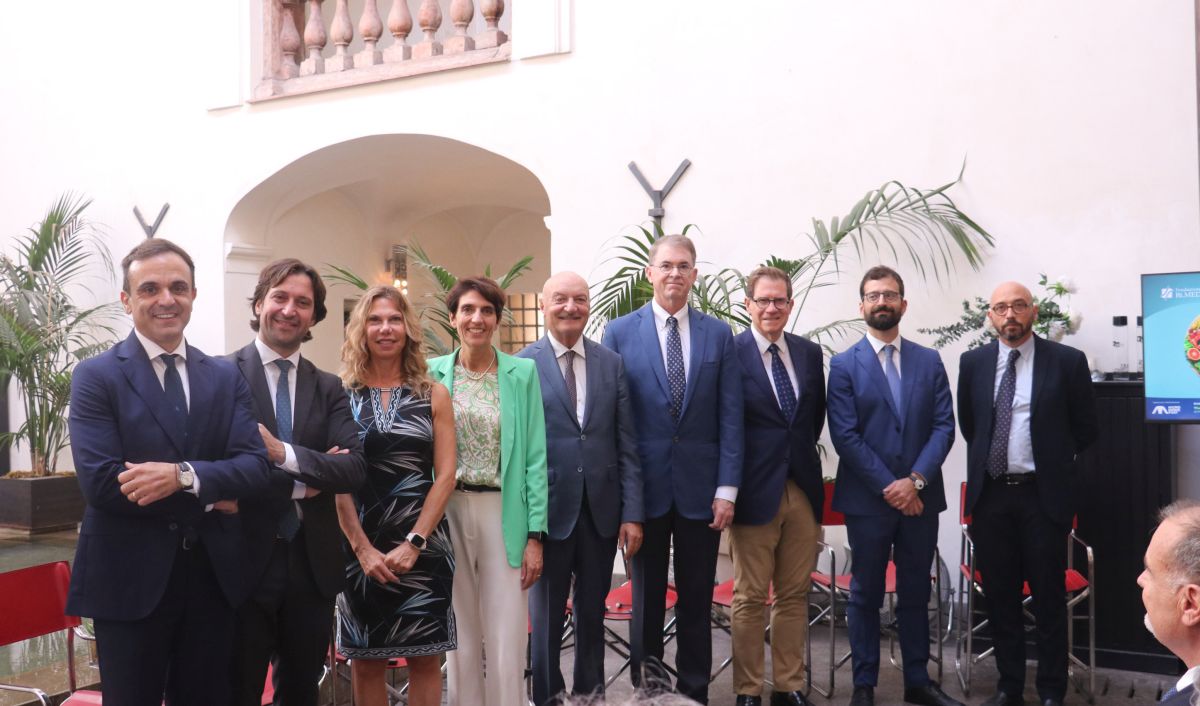PALERMO (ITALPRESS) – The most recent scientific studies indicate that there is a correlation between the invisible community of bacteria, viruses and fungi in our gut and the proper functioning of the immune system, but not only that: anxiety and depression and even the onset of a wide spectrum of diseases pass from the “belly.”This is the starting point for the Ri.MED Foundation’s Scientific Symposium “Nutrition, Microbiome and Metabolism,” taking place today and tomorrow in Palermo, a multidisciplinary conference to explore nutritional health through cutting-edge research ranging from the psychobiology of food intake – Prof. Finlayson of the University of Leeds – to the discovery of multi-receptor drugs against obesity – Prof. Tschop of the University of Munich -, to the dramatic effects of emulsifiers and ultra-processed foods on our microbiota – Dr. Benoit Chessaing, to the analysis of animal feeds and their effects on the microbiome – Dr. Paraskevopoulos of the European Food Safety Authority. “I am thrilled to welcome these outstanding speakers, more than twenty of them, from all over the world for what promises to be a Symposium of the highest caliber,” says Giulio Superti-Furga, Chairman of the event, Scientific Director of the Ri.MED Foundation and future Director of the Ri.MED research center under construction in Carini. “The study of the interaction with the environment that surrounds us is the key to understanding human health, our organism is made up of the environment and Sicily is the ideal place to study this relationship according to a “One Health” approach: in the field of nutrition just think of the Mediterranean diet.” For the first symposium as scientific director, Superti-Furga chose food as an exogenous element that interacts with human health: the study of this interaction will allow the identification of new preventive, diagnostic and therapeutic targeted treatments, also in view of the opening of the Ri.MED research center.Maria Rescigno, an internationally renowned immunologist, was among the pioneers of microbiome research and is now among the world’s leading experts, as well as co-chair of today’s Ri.MED Symposium: “Thanks to modern gene sequencing techniques, we now know that ‘we are more microbes than humans,’ meaning that we have more microbes than human cells. There is a true ecosystem in our bodies, on whose balance our health depends: gut dysbiosis is nothing more than a condition of microbial imbalance caused by an overgrowth of “aggressive” bacteria. A wrong diet negatively affects our defenses, alters the immune system and can cause various ailments, even the onset of cancer. According to Rescigno moreover, “there is a bidirectional connection between the gut and the brain; for example, a permeable gut condition can result in the release of inflammatory mediators, which are dangerous for the whole organism and in particular for the brain.” This means that-at least on a theoretical level-it is possible to prevent and treat conditions such as anxiety and depression, and even various neurodegnerative diseases, by preserving a healthy gut barrier. This is one of the topics that emerged during the Round Table that took place this morning, a popularizing event that the Ri.MED Foundation organized in anticipation of the start of technical work in the early afternoon, for the sharing of nutrition-related issues with key players in the area. They discussed prevention and what to do to have a healthy microbiota (mainly eating healthy and varied foods), but also gender research: Prof. Hellas Cena, a medical nutrition specialist, highlighted how personalized nutrition can effectively contribute to women’s well-being. Dr. Alessandro Mattina, head of the Diabetology Service at IRCCS ISMETT, described complications and comorbidities associated with Metabolic Syndrome, diabetes and obesity, all nutrition-related diseases, while Prof. Camillo Ricordi spoke of “sick longevity” as the worst pandemic of the century: more than 90 percent of those over 60 have at least one disease, with an obvious huge economic impact on society, estimated at $38 trillion per year. “The objective of the Symposium is to bring together in Palermo, each year on a different and specific research focus, the leading experts at the international level to create a fruitful opportunity for debate and discussion on scientific innovations, thus enriching the competitiveness of the entire area,” comments Paolo Aquilanti, President of the RI.MED Foundation. “In an increasingly complex scenario, it is necessary to share ideas and discoveries among professionals in order to outline possible strategies and design new solutions. “Born out of the international partnership between the Italian government, the Sicilian Region, CNR, the University of Pittsburgh and UPMC, Ri.MED now has a hundred researchers and more than 30 patents and is preparing for an exceptional phase of growth in view of the opening of the research center in Carini.- photo press office Fondazione Ri.MED – (ITALPRESS)

